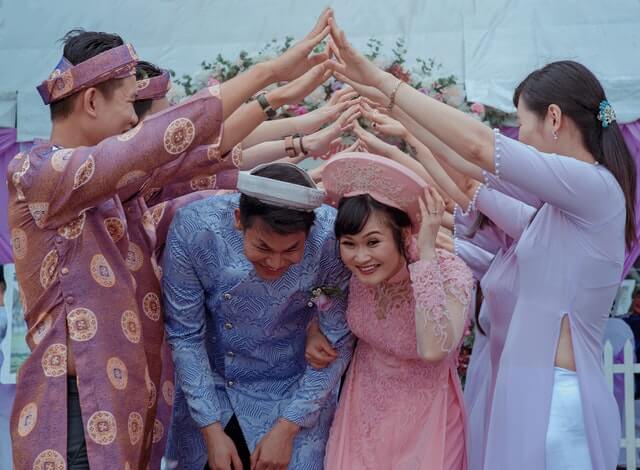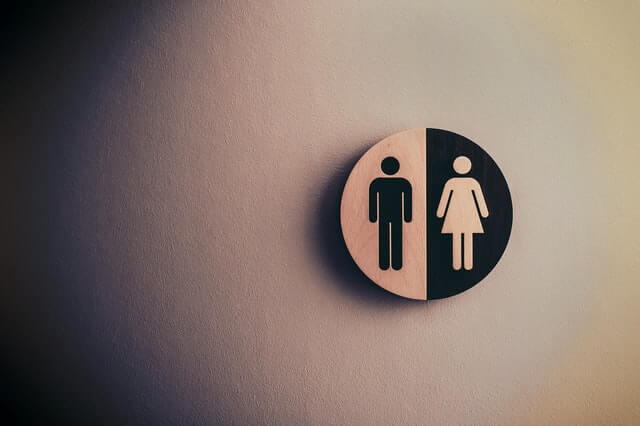This Blog is written by Rithu from Ramaiah college of law, Bangalore. Edited by Karan Dutt.
Although the Indian media does not shine much light on this issue it is a known fact that most of the police brutality which takes place in India is unaccounted for solely on the basis that they are law enforcement officers. Police brutality is the use of unnecessary force and violence by law enforcement officers. Police brutality is the abuse of power which includes physical and verbal harassment physical or…
This Blog is written by Jatin Pandey from Dharmashastra National Law University, Jabalpur. Edited by Karan Dutt.
Reservation is one of the debated topics in the contemporary times. In India, reservation policy is the process of reserving some percentage of seats for backward sections of the society, schedule caste, schedule tribe, in government jobs, institutions, etc. In my opinion reservation based on the caste is detrimental to society and its interests. This form of reservation instils enmity in society and fosters a sense of inequity…
This Blog is written by Soujanya Boxy from National Law University, Odisha. Edited by Karan Dutt.
Women have had been deprived of equal economic, social and political opportunities for the idea of patriarchy or male superiority is still being followed by the society. Women have been discriminated against and marginalized because of their gender. Patriarchy has played a significant influence in causing gender disparities. The idea of patriarchy has been stuck in the soul of the society and different attempts have…
This Blog is written by Tanvi Sanjay Rane from Dr. D.Y. Patil College of Law, Maharashtra. Edited by Karan Dutt.
Privacy literally means the quality of being secluded from the presence or view of others or the condition of being concealed or hidden. It entails the quality or state of being apart from company or observation. It is the freedom from unaccredited invasion. It is an important aspect of human dignity and is inseparable from a dignified human existence. It has thus been recognised as a fundamental human right in…
This Blog is written by Saptaswara Chakraborty from North Eastern Hill University, Meghalaya. Edited by Karan Dutt.
Animals, just like humans, possess the sense of feeling pain which includes both mental and physical pain. However, we as humans have forgotten this aspect and so we treat animals inhumanely. So, to protect them and to let them thrive in this world, which equally is theirs, the Prevention of Cruelty Act, 1961 was passed. The Act, which was framed several decades prior, envisages a sentencing policy and penalties…
This Blog is written by Anish Bachchan from Amity Law School, Noida. Edited by Karan Dutt.
Biology is very funny because it can be looked at as a double-edged sword subject. It can save lives and find discoveries of the world and the solar system while at the same time, it can take lives and destroy everything. When penicillin was discovered in 1928, it became a huge medical player alongside morphine during World War II. I must remind you that this is the same war that saw the human experimentation at…
This Blog is written by Anhadinder Singh from Amity Law School, Noida. Edited by Pranoy Singhla.
Medical science is expanding at an ever-increasing rate. Kidney transplants are now almost commonplace. In the past twelve years, more than one thousand have been manufactured. Liver and heart transplants are the current headlines; lungs may be next. Radioisotopes are used for diagnosis and treatment. The mechanism of human inheritance is increasingly becoming an open book. Cardiac catheterization is a…
This Blog is written by Anusuya Ghosh from KIIT School of Law, Odisha. Edited by Pranoy Singhla.
It’s critical to understand what defines medical malpractice. A doctor owes a set of responsibilities to the patient who comes to him with an illness. Negligence is the result of a breach of this responsibility. A fundamental understanding of how medical negligence is assessed in India’s various judicial courts will allow a practitioner to practise medicine without fear of being sued for claimed medical carelessness…
This Blog is written by Harshit Rai from Amity Law School, Lucknow. Edited by Pranoy Singhla.
That’s how culture of India has been at some period of time. In India, women are treated with respect and reverence like that of God. However, this respect that’s prevalent within the culture hardly materializes into equality between the two sexes. One cannot help but make this comparison of culture and equality in other countries, especially those which are developed nations and have focused on gender…
This Blog is written by Zeeshan Husain from Indore H.R.K. Law College, Pilibhit. Edited by Pranoy Singhla.
The Constitution drafted by the legal mind of B.R. Ambedkar became the guiding light in all matters of legislature and the executive. The nation witnessed its most prominent leaders i.e. Jawaharlal Nehru and Mahatma Gandhi, who were also exemplary lawyers. This bulkiest constitution majorly emphasized on social welfare and it sought to empower the weakest members of the society. The nation…
This Blog is written by Aditya Awasthi from Asian Law College, Noida. Edited by Pranoy Singhla.
India is a country which consists of large number of crimes and criminals. In India all punishments are based on the motive to give penalty for the wrongdoer. There are two main reasons for imposing the punishment, one is the wrongdoer should suffer and other one is imposing punishment on wrongdoers discourages other from doing wrong. There are different kinds of punishment in India based on their offence…
This Blog is written by Promita Ghosh from ICFAI University, Dehradun (Department of law). Edited by Pranoy Singhla.
Intellectual Property Rights are lawful rights governing the utilization of constructing of the human mind. The identification and preservation of these rights is of current origin. trademarks, Patents and designs are recognized as industrial property. According to International protocol for the preservation of industrial the safeguarding of industrial assets has as its focus trademarks, utility models, service marks, geographical…
This Blog is written by Shaurya Nagpal from Bennett University, Greater Noida. Edited by Pranoy Singhla.
Intellectual Property Rights (IPR) are the legal rights which protect the creation of a human intellect. These rights are of prime importance and prove to be very beneficial for the owner by granting protection and monopoly over the use of such creation. The development in the field of intellectual property over the recent years has proved to be very pivotal in various sectors through preserving the rights of the…
This Blog is written by Akshara Lagisetty from Amity University, Mumbai. Edited by Pranoy Singhla.
The internet being one of the biggest invention the man kind had ever made, it has certain drawbacks where an another world is created virtually. In this ever changing and fast pace world and internet has become something which people cannot live without and whole economies shut down lack of it. Where the chances of IPR violations are higher and should protect the owners the same way it does in real…
This Blog is written by Surbhi Pareek from NALSAR University of Law, Hyderabad. Edited by Pranoy Singhla.
Several Native American tribes have embarked on a venture into the uncharted territory of intellectual property rights in recent decades so as to their right self-determination, economic independence, and safeguard their cultural identity. The protection of Native American intellectual property rights is rarely discussed in the prevalent legal literature on intellectual property law in the United States, even though…
This Blog is written by Prerna Ganti from Symbiosis Law School, Hyderabad. Edited by Pranoy Singhla.
In the modern world, every nation is competing with each other to succeed in all fields. Various technological innovations, business ventures are being introduced to increase the growth and economy of the nation. Governments of all the nations are looking for ways to build their economy and develop the country. Thanks to the human brain, in fields such as technology, information, and culture, various advanced…
This Blog is written by Himanshi Sharma from Delhi Metropolitan Education, GGSIPU, Noida. Edited by Pranoy Singhla.
India has seen a lot of progressive changes in the recent past, however, despite almost half of the population undergoing menstruation, including our mothers and sisters, it has always been a taboo and our knowledge about it is quite low. We always have chosen to ignore to speak of menstruation or its products. Such taboos about menstruation present in many societies have a huge impact on women’s…
This Blog is written by Rahul Chatwal from Christ University, Pune. Edited by Pranoy Singhla.
Article-14 of the Indian Constitution is from the very beginning is considered to be one of the most important Articles as it talks about the most important word that is equality that all people are equal in the eye of law and there should be no discrimination based on gender, caste, and community and all people should be treated equally. And henceforth several steps are taken by the government of India to bring…
This Blog is written by Geetanjali Sharma from University of Petroleum and Energy Studies, Dehradun. Edited by Karan Dutt.
International criminal law theory and practice (ICL). ICL promotes a contradiction in which it incorporates a post-sovereign peace and security agenda as well as a common moral discourse, yet it is encased in a state-centric view of international law and politics. Despite the rhetoric that ICL provides a method to promote global justice and peace, ICL maintains a reverence to state sovereignty that fits uneasily with…
This Blog is written by Kashish Batta from University of Petroleum and Energy Studies, Dehradun. Edited by Karan Dutt.
Indian democracy is framed around the ideal of representation, even when circumstances are difficult. We are aware of the many issues that have arisen in an attempt to satisfy an adequate representation of the different Indian peoples. Following the ideals of democracy, India has two houses; the Lok Sabha is the home of the people and the Rajya Sabha is the council of states. These two houses are in session for most of…
This Blog is written by Geetanjali Sharma from University of Petroleum and Energy Studies, Dehradun. Edited by Karan Dutt.
If the consent was acquired by a false promise of marriage within the meaning of Section 375 of the Indian Penal Code, 1860, whether sexual intercourse with the women amounted to rape. In India, rape was considered a crime, and those who committed it were punished. Marriage is seen as a holy bond between two individuals. It is more than just a sexual relationship; it also includes emotional and spiritual intimacy…
This Blog is written by Kashish Batta from University of Petroleum and Energy Studies, Dehradun. Edited by Karan Dutt.
Women of India have been treated differently since time immemorial. Even after independence, women were discouraged from doing many things and were regarded as carers of the house. This type of inequality prevailed despite so many goddesses being worshiped in the country. Even today, even though there is a great improvement in gender equality compared to what it was before independence, society’s…
This Blog is written by Geetanjali Sharma from University of Petroleum and Energy Studies, Dehradun. Edited by Karan Dutt.
One of the goals of the United Nations Charter is to maintain international peace and security. Violence and conflict harm long-term growth. Human rights abuses are at the foundation of conflict and instability, which in turn always leads to further human rights violations. As a result, actions to preserve and develop human rights have intrinsic preventative potential, and rights-based approaches to peace and…
This Blog is written by Kashish Batta from University of Petroleum and Energy Studies, Dehradun. Edited by Karan Dutt.
Assisted suicide basically refers to the deliberately ending our or someone life. Mainly this is done to get from suffering or to relieve from the suffering from which the person is suffering. Different countries have their different laws for the euthanasia. The word euthanasia has been derived from the Greek word in which eu means the good or well and whereas Thanatos means the death. This euthanasia is not a right…
This Blog is written by Geetanjali Sharma from University of Petroleum and Energy Studies, Dehradun. Edited by Karan Dutt.
All citizens of India are promised equality by the Indian government. The numerous articles of the Constitution explained in the chapters on Fundamental Rights (justiciable) and Directive Principles of State Policies (non-justiciable) define the state’s duty to offer equal opportunity in social, political, and economic sectors to all of its inhabitants. Nonetheless, the pervasive presence of glaring disparities continues to be…
This Blog is written by Kashish Batta from University of Petroleum and Energy Studies, Dehradun. Edited by Karan Dutt.
India’s Diaspora a diverse international community which is representing types or forms of geographies and also the periods of formation. Hence, it requires different and distinct approaches to engage them and connect with the country India. The common thread which is there that unites them is the idea of India and its intrinsic values. The term diaspora derives from the Greek word which is diaspeirein which means…
This Blog is written by Vibhuti Rao from Symbiosis Law School, Noida. Edited by Karan Dutt.
Numerical and economic growth is simply one aspect of development in the corporate world. It is a significant means of measuring and tapping the potential in such a competitive market. Though it is definitely not the sole way of doing so effectively. In order for a businessman to holistically grow and maintain repute and onus in the market, he out to fulfil his corporate social responsibility. Partnerships are regularly…
This Blog is written by Anjana Vijay from University of Petroleum and Energy Studies, Dehradun. Edited by Karan Dutt.
Any party can be considered as ‘suffering’ when something they may have been enjoying was taken over by another party to issue. This is a violation of the party’s rights and is legally binding with efficient remedies. The legal remedy is one of these remedies. When the victim is rehabilitated to the position as before their rights were violated, he is said to have a legal solution…
This Blog is written by Nayantara Rao from Amity University, Mumbai. Edited by Karan Dutt.
Under sexual offences there are a range of various crimes which can be considered, including non-consensual crimes such as sexual assault or rape, crimes against children including grooming or child sexual abuse, and exploitative crimes towards others for a sexual purpose, whether it be in person or on online. Domestic abuse, sexual offences, harassment, rape, stalking, so-called ‘honour-based’ violence which…
This Blog is written by Anwesha Kundu from Amity University, Kolkata. Edited by Karan Dutt.
Not all work done by children should be classified as child labor that is to be targeted for elimination. Children’s or adolescents’ participation in work that does not affect their health and personal development or interfere with their schooling, is generally regarded as being something positive. This includes activities such as helping their parents around the home, assisting in a family business or earning pocket…
This Blog is written by Vibhuti Rao from Symbiosis Law School, Noida. Edited by Karan Dutt.
The Hindu Succession Act of 1956 was a watershed moment in Hindu law for women. For the first time, a Hindu woman was given the opportunity to become the property’s sole owner. She had the same right to inherit as a man, and a window was given special consideration in the succession of both her husband’s and her father’s properties. The Hindu Succession (Amendment) Act of 2005 is a law that amends the…
This Blog is written by Anjana Vijay from University of Petroleum and Energy Studies, Dehradun. Edited by Karan Dutt.
The Industrial Disputes Act, 1947 is an important law aimed at finding the right treatment for workers’ and industrial peace, which is essential to promoting the economic growth of any country. In terms of section 2 (j) of the Industrial Dispute Act, the industry is defined in two categories as, “any business, trade, practice, performance or calling of employers, and includes any call, service, employment, manual or…
This Blog is written by Nayantara Rao from Amity University, Mumbai. Edited by Karan Dutt.
On all key dimensions, substantial intercountry differences in IPR regimes can be seen in the level and scope of protection, the strictness with which legislation is enforced, the mechanisms used and the way violations are penalized. The duration in the case of patents varies considerably from around 5 to 20 years, and usually shorter terms are more commonly found in industrializing countries. Most countries…
This Blog is written by Vibhuti Rao from Symbiosis Law School, Noida. Edited by Karan Dutt.
United Nations Convention on Contracts for the International Sale of Goods is also known as the ‘Vienna Convention.’ It is an international framework across borders of countries who ratified it to build a uniform international commerce practice on 25th September 2020. It is believed to be the biggest accomplishment and most successful international document in unified international sales. It is a living document…
This Blog is written by Anjana Vijay from University of Petroleum and Energy Studies, Dehradun. Edited by Karan Dutt.
Domestic violence is a burden on numerous sectors of the social system and quietly, yet dramatically, affects the development of a nation… batterers cost nations fortunes in terms of law enforcement, health care, lost labor and general progress in development. These costs do not only affect the present generation; what begins as an assault by one person on another reverberates through the family and the community…
This Blog is written by Nayantara Rao from Amity University, Mumbai. Edited by Karan Dutt.
Capital punishment or what is known as capital punishment will be imposed by any state as a punishment to the criminals for any serious offences committed by them. Capital crimes, capital offences or capital felonies, and a few others are the names given to the crimes that are punishable by death depending on the jurisdiction, but usually include heinous crimes against any person like murder and mass murder…
This Blog is written by Anwesha Kundu from Amity University, Kolkata. Edited by Karan Dutt.
Copyrights protect works of authorship, such as photos, videos, writings, music, movies, software, and works of art that have been tangibly expressed. AEON Law provides counseling, registration, agreements, acquisition, and litigation services to protect and enforce your copyrights. We work with clients ranging from software and technology companies to artists, songwriters, and chocolate makers. The law of…
This Blog is written by Vibhuti Rao from Symbiosis Law School, Noida. Edited by Karan Dutt.
We have come a long way and the society has seen a massive shift in the employment cultures at workplaces. Conventional gender stereotypes are being overridden those limited men of the house to go outside the house and earn for the family. Women have increasingly come to the forefront and have been accepted as bread winners for their families. The problem of sexual harassment has existed since time…
The long odd hour working in business firm and industry is exploiting the workers: Judicial Analysis
This Blog is written by Anjana Vijay from University of Petroleum and Energy Studies, Dehradun. Edited by Karan Dutt.
Working overtime is an international work practice. “If overtime is driven by workload and intelligently balanced, planned and documented, it can be a very effective tool,” says Drummond Kahn, director of audit services for Portland, Oregon. If it’s not used appropriately, he adds, “It can lead to paying more than needed to get the work done.” In a competitive business environment to achieve a competitive advantage…
This Blog is written by Nayantara Rao from Amity University, Mumbai. Edited by Karan Dutt.
In copyright law, fair dealing is a user’s right permitting use of, or “dealing” with, a work without payment or permission of copyright royalties which is copyright protected. For the purpose of education, satire, parody, criticism, review, research, private study, or news reporting other people’s copyright protected material is allowed to be used by the fair dealing exception, with it being provided that the work…



































